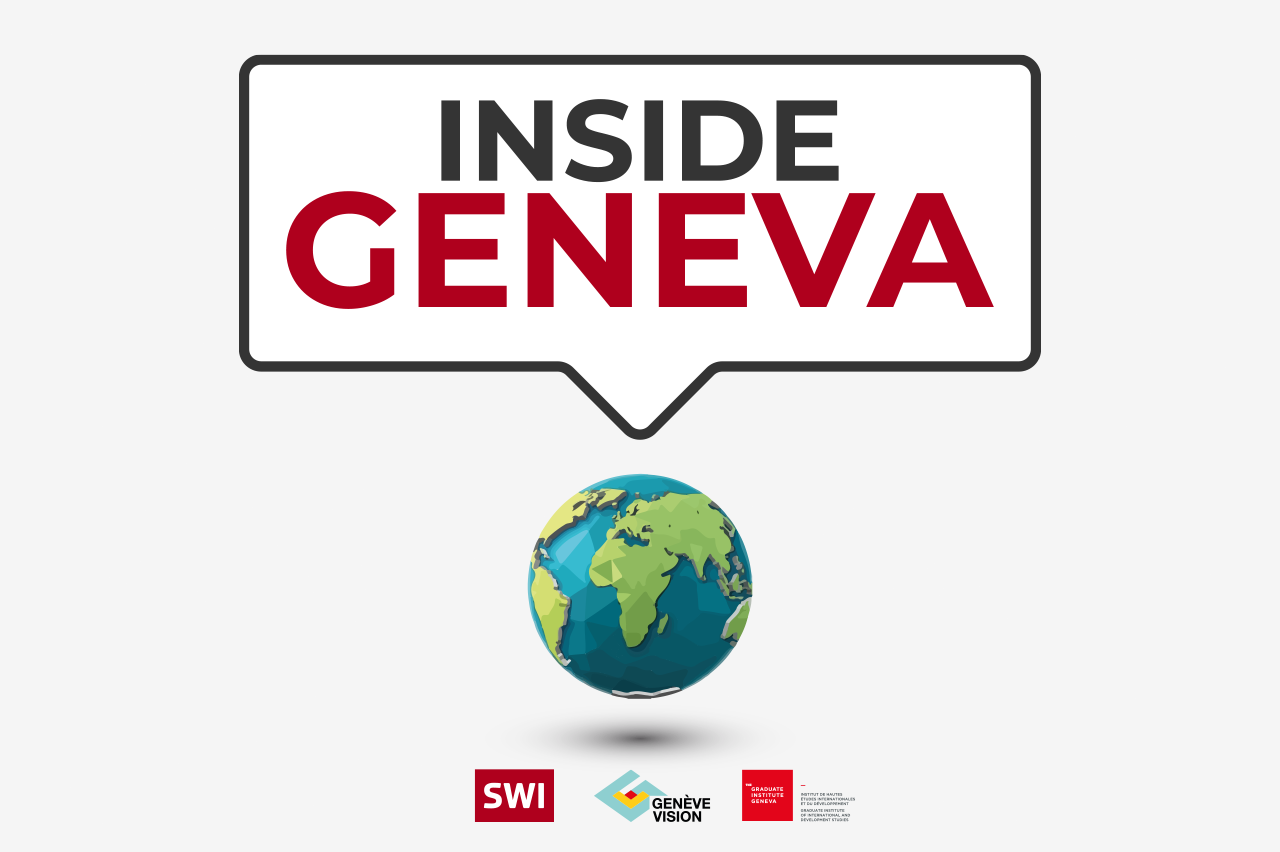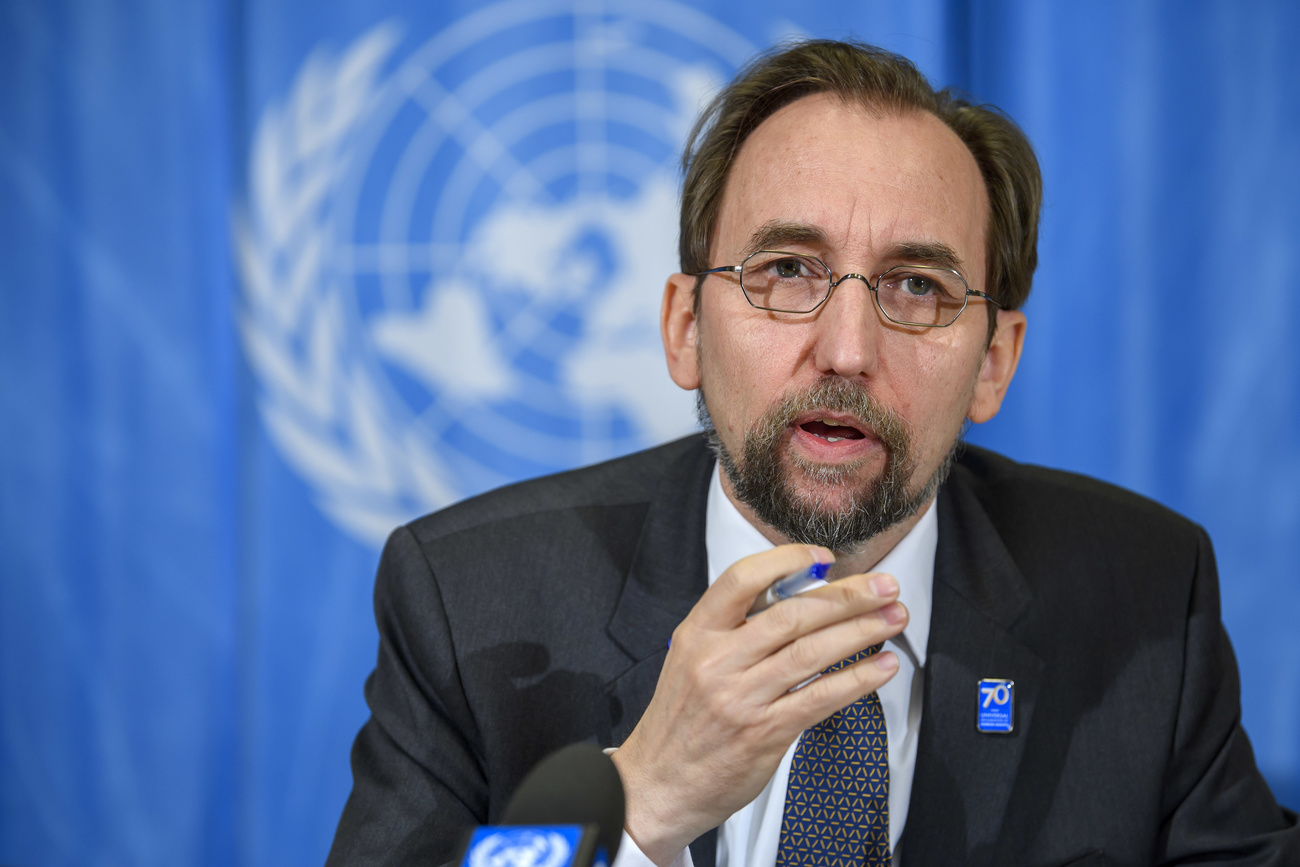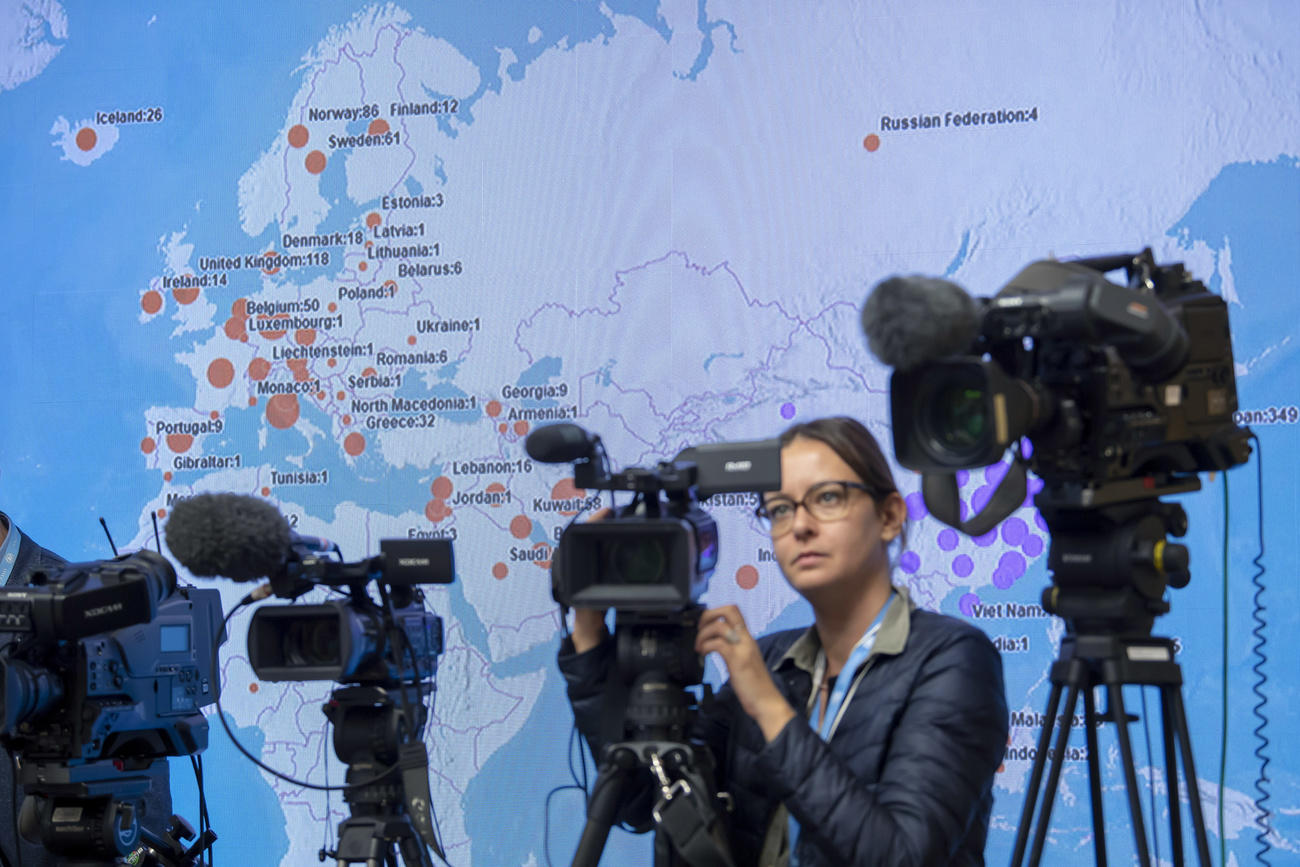Is it the toughest job at the UN?
Heading up a United Nations agency is no easy task. Whether your area of expertise is environment (UNEP), children (Unicef) or health (WHO), the fact is you are suggesting and developing policies in areas which national governments tend to view as their unique responsibility.
But if there is one single UN post that is perhaps more challenging, more delicate, than all the rest, it is the UN High Commissioner for Human Rights. Your job is to shine a spotlight on abuses wherever and whenever they occur, and to encourage, whether by stick or carrot, or both, governments to uphold the fundamental human rights standards they have signed up to.
That means, often, investigating and exposing the dark operations of states, the abuses they may carry out, tacitly encourage, or simply turn a blind eye to.
To get a clearer picture of what that job is really like, I had the honour of interviewing Zeid Ra’ad Al Hussein, who was UN High Commissioner for Human Rights for 2014-2018, and, previous to that, had a long career with the UN and in diplomacy.
(Click on the teaser below for the recent “Inside Geneva” podcast with former UN High Commissioner for Human Rights Zeid Ra’ad Al Hussein).

More
Inside Geneva: In charge at the UN in trying times
Former Yugoslavia
Zeid, as he likes to be known, is from a privileged background. He is a member of Jordan’s royal family, but never seems to have been comfortable with the term ‘prince’. His career with the UN began, he told me, almost by accident, when he accompanied his brother on a trip to the United States. He ended up in New York, where a friend at the United Nations told him the UN was recruiting for its work during the conflict in former Yugoslavia.
Within a few months Zeid was there, working as a political officer with UNPROFOR, the UN’s protection force. It was, he says ‘a pivotal moment’ in his life, and one that cemented his commitment to human rights.

“For all of us who were there in former Yugoslavia, it gets under your skin because it is the complete human experience; everything is in it, from heroism to cowardice, to the most vile criminality.”
Zeid attributes a great deal of the ‘heroism’ to UN aid workers, who tried, often under very dangerous conditions, to bring help to former Yugoslavia’s suffering civilians. The ‘cowardice’ he reserves for ‘governments around the world but also at higher levels within the UN. We were too timid, too worried about our own mandate.’
Come out swinging
Almost 20 years later, in 2014, Zeid was approached to become UN High Commissioner for Human Rights. His initial reaction, perhaps based on his experience in former Yugoslavia, and his knowledge that the UN could at times be frustratingly ineffective, was to refuse.
But he took a walk around New York’s Central Park to think about it. “That was probably fatal,” he remembers with a laugh. “If I had just said no, that would have been the end of it, but once I had thought about it I couldn’t say no.”
Ahead of taking up the position, Zeid took advice from outgoing commissioner Navi Pillay, who told him not to privilege any country. “It’s a fairly obvious point but it’s amazing how many people inside the UN will do that.”
He also consulted Kenneth Roth, the executive director of Human Rights Watch. “Ken just said ‘come out swinging.’”
Zeid decided to do just that. His maiden speech to the Geneva-based UN Human Rights Council in September 2014 contained a withering attack on Islamic State, warning that any territory it controlled would be ‘a harsh, mean-spirited house of blood’.
He also turned his attention to Europe’s rightwing populist leaders, calling the UK’s Nigel Farage and Geert Wilders of the Netherlands ‘demagogues’. And when Donald Trump was running for office, Zeid described him as a ‘bigot’, and suggested it would be dangerous for him to get elected.
Stand up to them
Clearly this is not a strategy designed to win friends in governments, but Zeid is unapologetic. Trying to keep governments on side, whatever their actions, is, he believes, a mistake the UN makes far too often.
“The problem is that we have too much of the UN that seeks just to please governments, bends over backward, thinks that its job is just to please,” he says. “It has to be seen as independent of any influence of government and must exercise that independence…in a way that it is respected, not to genuflect every time a government representative approaches the UN, and then, for fear of losing funding or for fear of losing a position, then just give way.”
Rather than worry what the reactions of government leaders might be to the words and deeds of UN officials, Zeid believes it is governments who should have a wary respect for the UN.
“Rather than you worry about how they may react to your statements, they ought to worry about what you might be saying about them. It’s a question of speaking with authority and clarity on the basis of knowledge and experience. 75 years of experience in these fields, the UN has enormous knowledge that it could bring to bear, and it needs to be reckoned with.”
Hard work behind the scenes
And while we may remember Zeid most for his outspoken comments about Donald Trump, in fact during his four years in office, he and the UN Human Rights Office were hard at work, often quietly behind the scenes, investigating human rights violations around the world.
There were detailed reports on Syria, investigations into the conflict in Ukraine, into the persecution of the Rohingya in Myanmar, and much more. Much of Zeid’s work involved traditional quiet diplomacy, reaching out to governments, and sharing concerns about human rights violations.
“Most of my time I was writing to governments, talking to them, calling them, but I had no hesitation of going public when I felt we needed to go public. I always left room for them to understand that I could go even further, and I would. So if they ignored me, it may be to their peril,” he said.
When, in 2017 Myanmar’s army launched a brutal crackdown on Rohingya Muslims, causing a million people to flee, I remember going to Zeid’s office to interview him. He had just come off the phone with Aung San Suu Kyi, and seemed optimistic that she, Myanmar’s elected leader and a Nobel Peace Prize winner, would act to stop the violence.
When that did not happen, and UN human rights investigators published a report detailing the full horrors of what was happening in Myanmar’s Rakhine State, Zeid did not hesitate. He described the violence as containing ‘elements of genocide’, and, in a final interview before leaving office, told me Aung San Suu Kyi should have resigned rather than preside over such atrocities.
His words will not have endeared him to Myanmar’s leaders. But he, and his teams of investigators, did focus world attention on what was happening in Rakhine, making it hopefully more difficult for violence on such a scale to be carried out again.
And now?
Nowadays, Zeid is Professor of Law and Human Rights at the University of Pennsylvania, and a new member of The Elders, the independent group of global leaders working for peace, justice and human rights founded by the late Nelson Mandela.
But he remains a keen observer of the United Nations, and doesn’t hesitate to offer his thoughts on the direction it should take, in this, its 75th year. Key to it, he believes, is persuading the permanent members of the UN Security Council to give up their veto when atrocity crimes are taking place.
“That would unlock the possibility for collective action… and we can see the Security Council operating in the way it ought to be operating,” he said.
“The UN has many brilliant people in it. If we could just work in the areas we are really good at, with the brilliant people we have, and inspire leadership, be less bureaucratic, this organisation can experience a revival and capture the imagination of people.”
“Speak on principle, try not to be afraid… if the member states and governments begin to think, these UN people, we have to take them seriously, on the basis of principle and international law… that’s where we need to be.”
“The world needs the UN, very desperately. But it needs a well-led UN, one that’s highly respected, and reckoned with.”
You can subscribe to more episodes of Inside Geneva here, and follow Imogen Foulkes on twitter at @imogenfoulkes to send her questions and suggestions for Geneva-based topics.

In compliance with the JTI standards
More: SWI swissinfo.ch certified by the Journalism Trust Initiative










You can find an overview of ongoing debates with our journalists here . Please join us!
If you want to start a conversation about a topic raised in this article or want to report factual errors, email us at english@swissinfo.ch.